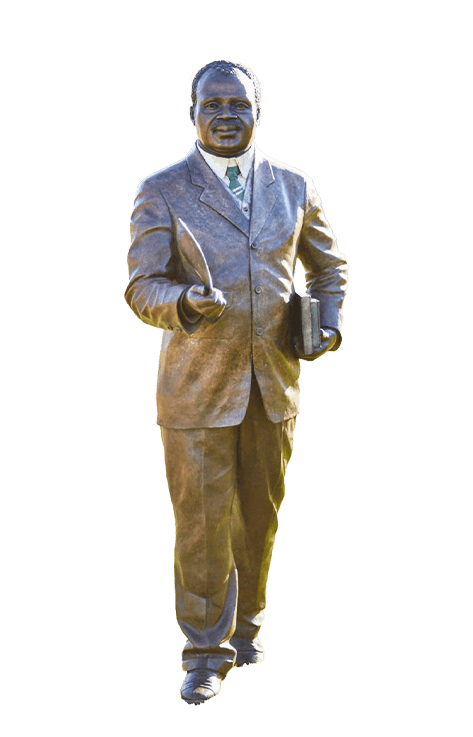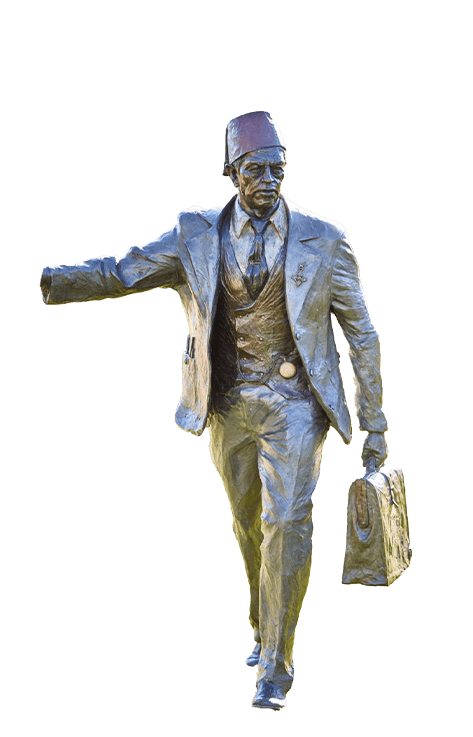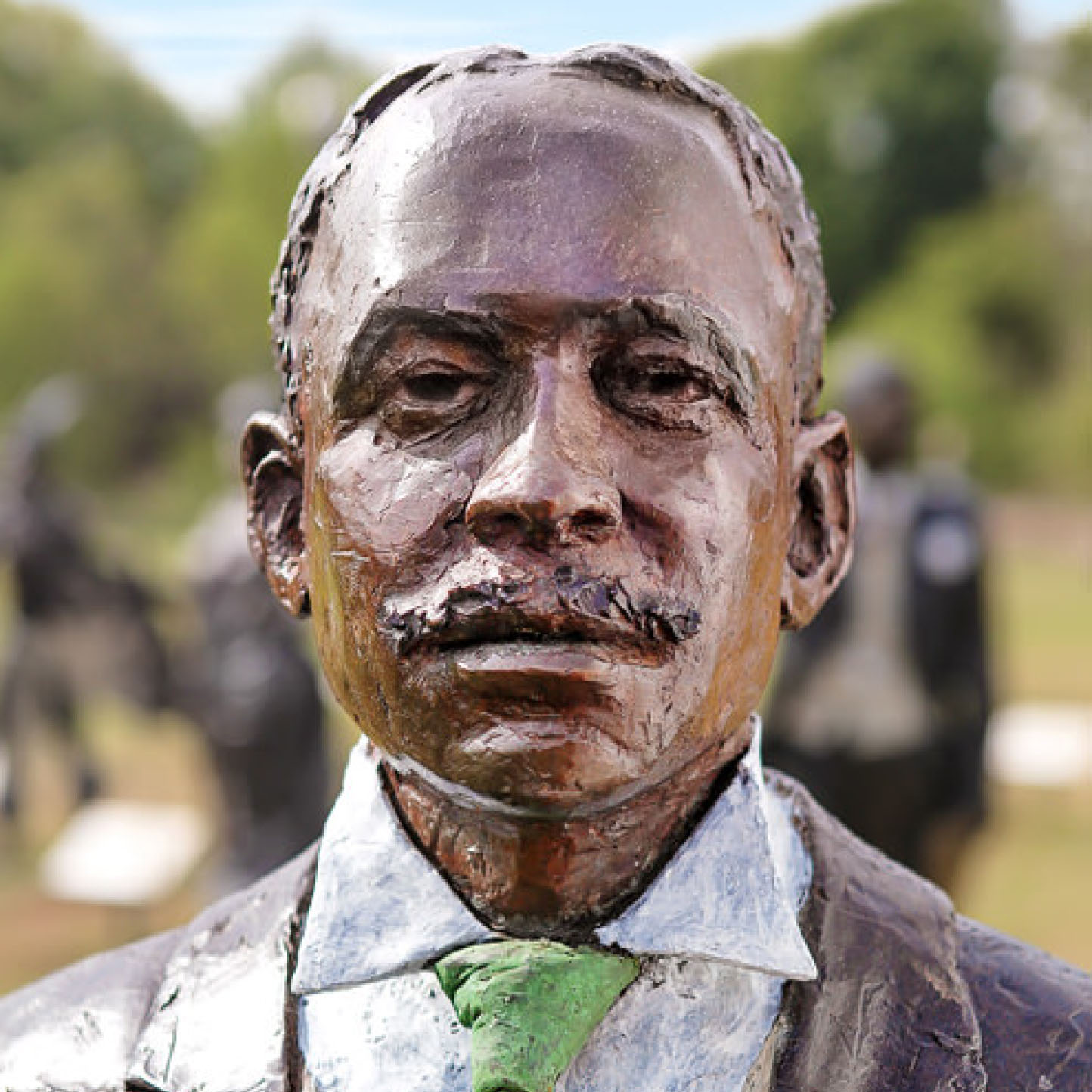
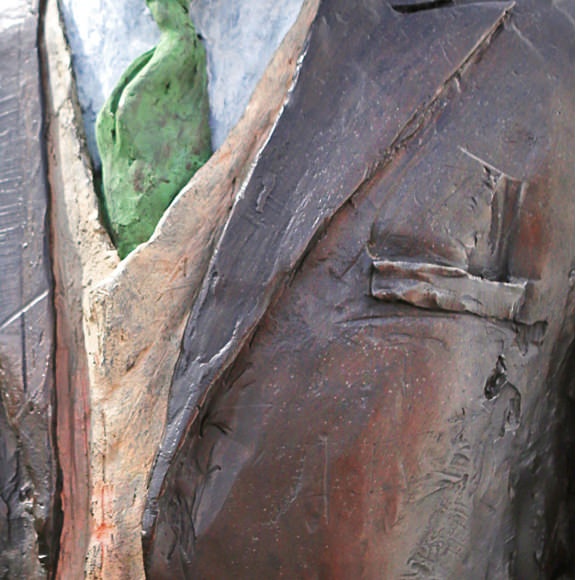
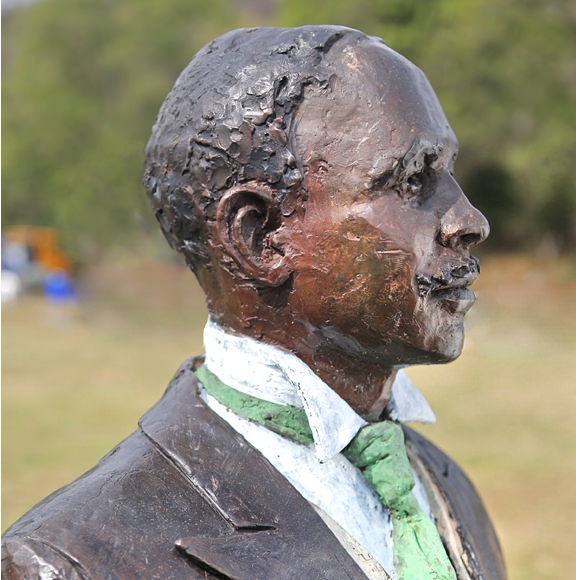
"If the white man were to work himself, the natives would have no grudges. But he wishes the native to work for him while he stands and looks on, putting all the profit into his pocket."
Thomas Mapikela
Thomas Mtobi Mapikela
1869 - 1945
Founder member and speaker of the South African Native National Congress
Thomas Mapikela was born in Lesotho. He went to school in Queenstown and later furthered his studies at night.
In 1886 Mapikela took an apprenticeship in carpentry in Grahamstown and by 1903 had set up shop as a builder, carpenter and cabinet-maker in Bloemfontein. Some of the imposing houses he built more than 100 years ago still stand there today.
Mapikela was a central figure in Orange Free State African politics for close on 40 years. Throughout this period his name repeatedly features in deputations, in executives of political organizations, and as an active participant in political campaigns.
In the early 1900s African political organizations were being formed all over the country to protect the rights of black South Africans. In 1909 Mapikela was among the deputation to England to protest the colour bar clauses of the South Africa Act, which created the Union of South Africa from the British Colonies of the Cape of Good Hope, Natal, the Orange River Colony, and Transvaal.
As president of the Orange Free State Native Congress, he played a prominent role in the founding of the South African Native National Congress (SANNC) in 1912, later to become the African National Congress (ANC). Mapikela was elected to the SANNC executive and as representative of the Orange Free Sate, he was part of the delegation sent to Britain in 1914 to protest the 1913 Land Act.
Throughout his life, Thomas Mapikela worked towards the protection of the political, social, and religious welfare of Africans and occupied a central role in local and national African politics and activities, serving as speaker of the ANC for 25 years. He helped draft the 1919 SANNC Constitution and the historic 1943 Africans Claims. In the Bloemfontein Bantu and Coloured People's Directory of 1934, Mapikela is described as a self-made man.
He was known for his humility and service to his community, but while he features in key moments in history, he preferred to remain in the background.
Mapikela was married, had nine children and died in Bloemfontein in 1945.
